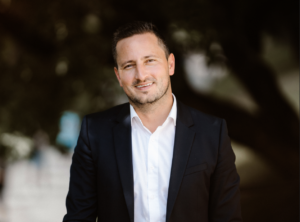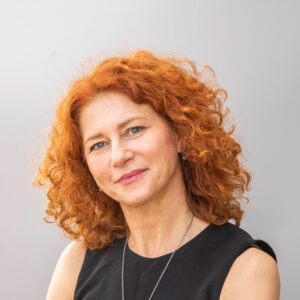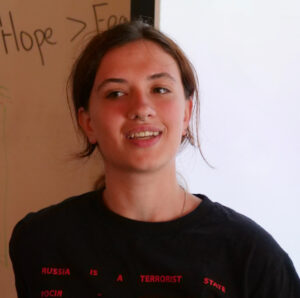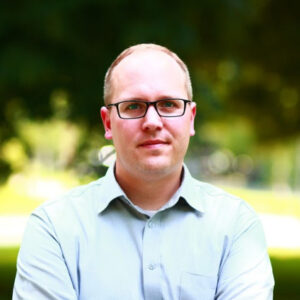
 Security and Democratic Resilience – A Regional Focus on Central and Eastern Europe and the Balkans
Security and Democratic Resilience – A Regional Focus on Central and Eastern Europe and the Balkans
This Plenary will debate and explore the tensions between democracy and security at play in today’s regions of Central and Eastern Europe and the Balkans. Following the Plenary of 17 November on Democracy and Security, this session will explore further what these tensions mean for the different countries in the region. If the Russian war of aggression on Ukraine has been met with a relatively united front on the European side, there are more divisions under that EU mantel than one can see. The divisions reflect the many questions that are posed by today’s European governance and security architecture and how the latter sits with a post-Cold war fight for democracy. In some countries, in addition to foreign interference, the very substance of democracy has at times been questioned, itself undermining the possibility of debating the future of our security. Security lies at the basis of our notions of peace and protection as societies. Democracy and security ultimately can only go together if we are not to undermine peace and prosperity. This Plenary will shed different lights and perspectives on these issues.
 Nicolae Ștefănuță – MEP Greens/EFA
Nicolae Ștefănuță – MEP Greens/EFA
Nicolae Ștefănuță MEP (Greens/Europe Free Alliance) is a full member of the Committee on Budgets and a substitute member of the Committee on the Environment, Public Health and Food Safety, and the Committee on Transport and Tourism. Furthermore, he is a member of the Delegation to the EU-Moldova Parliamentary Association Committee, the Delegation for relations with the United States of America (D-US) and the Delegation for relations with the NATO Parliamentary Assembly. Among his areas of interest as a MEP are climate change, foreign policy, security, public health, European budget, and European rights. He is a graduate of the Georgetown University McCourt School of Public Policy, where he obtained a Master of policy management degree. He has a bachelor’s degree in economics, obtained in Timișoara, Romania and a master’s in advanced international studies at the Diplomatic Academy of Vienna, Austria and in European studies from the University of Vienna. He began his professional career working for the Romanian Ministry of Foreign Affairs. Once Romania joined the European Union in 2007, Nicolae started his European career working for the European Parliament in various public policy areas, including budget and agriculture policy, as well as in the area of Transatlantic relations for the European Parliament’s Delegation for relations with the United States.
(PL)
Nicolae Ștefănuță – Członek Parlamentu Europejskiego (Zieloni/EFA) jest członkiem Komisji Budżetowej i zastępcą członka Komisji Ochrony Środowiska Naturalnego, Zdrowia Publicznego i Bezpieczeństwa Żywności oraz Komisji Transportu i Turystyki. Ponadto jest członkiem Delegacji do Komitetu Stowarzyszenia Parlamentarnego UE-Mołdawia, Delegacji do spraw stosunków ze Stanami Zjednoczonymi Ameryki (D-USA) oraz Delegacji do spraw stosunków ze Zgromadzeniem Parlamentarnym NATO. Wśród jego obszarów zainteresowań jako posła do PE są zmiany klimatyczne, polityka zagraniczna, bezpieczeństwo, zdrowie publiczne, budżet europejski i prawa europejskie. Jest absolwentem Georgetown University McCourt School of Public Policy, gdzie uzyskał tytuł magistra zarządzania polityką. Posiada tytuł licencjata w dziedzinie ekonomii, uzyskany w Timișoarze w Rumunii oraz tytuł magistra studiów międzynarodowych w Akademii Dyplomatycznej w Wiedniu i studiów europejskich na Uniwersytecie Wiedeńskim. Swoją karierę zawodową rozpoczął w rumuńskim Ministerstwie Spraw Zagranicznych. Po przystąpieniu Rumunii do Unii Europejskiej w 2007 r. Nicolae rozpoczął swoją europejską karierę, pracując dla Parlamentu Europejskiego w różnych obszarach polityki publicznej, w tym w polityce budżetowej i rolnej, a także w obszarze stosunków transatlantyckich w delegacji Parlamentu Europejskiego ds. stosunków ze Stanami Zjednoczonymi.
 Senada Šabić – Senior Research Fellow, Institute for Development and International Relations
Senada Šabić – Senior Research Fellow, Institute for Development and International Relations
Senada Šelo Šabić is a Senior Research Associate at the Institute for Development and International Relations in Zagreb, Croatia. She holds Ph.D. in political and social sciences from the European University Institute in Florence, Italy and has earned two Masters degrees – in international relations from the University of Zagreb and in peace studies from the University of Notre Dame, USA. Her research interests are European affairs, Balkans, migration and international security. Dr. Šelo Šabić is a fellow at the International Scholars Program in U.S. national security. She completed a study program at the University of Oxford on challenges of global human development; the World Bank training in international development cooperation; a training in strategic foresight at the German Council on Foreign Relations; and the Leadership Academy for Development led by Stanford University. Dr. Šelo Šabić has coordinated European research projects and has been a consultant for international development agencies. She is a representative of Croatia in the Standing Working Group on Gender in Research and Innovation at the European Research and Innovation Committee, a chair of the Development Cooperation Projects Approval Committee of the City of Zagreb and a member of the European Council on Foreign Relations.
(PL)
Senada Šelo Šabić jest starszym pracownikiem naukowym w Instytucie Rozwoju i Stosunków Międzynarodowych w Zagrzebiu. Posiada tytuł doktora nauk politycznych i społecznych Europejskiego Instytutu Uniwersyteckiego we Florencji oraz dwa tytuły magistra – stosunków międzynarodowych na Uniwersytecie w Zagrzebiu i studiów pokojowych na Uniwersytecie Notre Dame w USA. Jej zainteresowania badawcze obejmują sprawy europejskie, Bałkany, migrację i bezpieczeństwo międzynarodowe. Dr Šelo Šabić jest stypendystką International Scholars Program w zakresie bezpieczeństwa narodowego USA. Ukończyła program studiów na Uniwersytecie Oksfordzkim na temat wyzwań globalnego rozwoju społecznego; szkolenie Banku Światowego w zakresie międzynarodowej współpracy rozwojowej; szkolenie w zakresie prognozowania strategicznego w Niemieckiej Radzie Stosunków Zagranicznych; oraz Leadership Academy for Development prowadzoną przez Uniwersytet Stanforda. Dr Šelo Šabić koordynowała europejskie projekty badawcze i była konsultantką międzynarodowych agencji rozwoju. Jest przedstawicielką Chorwacji w Stałej Grupie Roboczej ds. Płci w Badaniach i Innowacjach w Europejskim Komitecie Badań i Innowacji, przewodniczącą Komitetu Zatwierdzającego Projekty Współpracy Rozwojowej Miasta Zagrzebia oraz członkinią Europejskiej Rady Stosunków Zagranicznych.
 Małgorzata Tracz-Member of Sejm (lower house Polish Parliament) Partia Zieloni
Małgorzata Tracz-Member of Sejm (lower house Polish Parliament) Partia Zieloni
Member of the 9th term of the Parliament of the Republic of Poland, Committee Member of the European Green Party, Co-chair of the Polish Green Party from May 2015 to January 2022.
(PL)
Posłanka na Sejm RP IX i X kadencji, członkini Komitetu Europejskiej Partii Zielonych, współprzewodnicząca Polskiej Partii Zielonych od maja 2015 do stycznia 2022.
 Agnieszka Bryc – Assistant Professor, Nicolaus Copernicus University
Agnieszka Bryc – Assistant Professor, Nicolaus Copernicus University
Agnieszka is an assistant professor at the Nicolaus Copernicus University in Toruń, Poland. She is a former member of the board of the Centre for Eastern Studies (OSW). She specialises in Russian foreign policy and Israeli security.
(PL)
Agnieszka jest adiunktką na Uniwersytecie Mikołaja Kopernika w Toruniu oraz byłą członkinią zarządu Ośrodka Studiów Wschodnich (OSW). Specjalizuje się w rosyjskiej polityce zagranicznej i bezpieczeństwie Izraela.
 Yevheniia Bryhinets- Executive Committee Member, Cooperation and Development Network
Yevheniia Bryhinets- Executive Committee Member, Cooperation and Development Network
Yevheniia Bryhinets is an Executive Committee Member of Cooperation and Development Network Eastern Europe (CDN), originally hailing from Ukraine, and is an activist and volunteer dedicated to the causes of feminism, social justice, and regional security. She has undertaken numerous initiatives and youth-oriented events to advocate for women’s and LGBTQAI+ rights, address the climate crisis, and shed light on Russian war crimes. Furthermore, since early 2022 she has been part of the organisation providing humanitarian and medical aid to those in Ukraine in need.
(PL)
Yevheniia Bryhinets jest członkinią Komitetu Wykonawczego Sieci Współpracy i Rozwoju w Europie Wschodniej (CDN), pochodzącą z Ukrainy, aktywistką i wolontariuszką zaangażowaną w sprawy feminizmu, sprawiedliwości społecznej i bezpieczeństwa regionalnego. Podejmowała liczne inicjatywy i organizowała wydarzenia dla młodzieży, w obronie praw kobiet i osób LGBTQAI+, a także podejmujące temat kryzysu klimatycznego i rzucania światła na rosyjskie zbrodnie wojenne. Od początku 2022 r. jest częścią organizacji zapewniającej pomoc humanitarną i medyczną potrzebującym na Ukrainie.
 Moderator: Adam Reichardt- Editor-in-Chief of New Eastern Europe
Moderator: Adam Reichardt- Editor-in-Chief of New Eastern Europe
Adam Reichardt is the Editor-in-Chief of the New Eastern Europe magazine based in Poland. Published since 2011, the magazine is one of the leading publications dedicated to the region of Central and Eastern Europe. He is also the co-host of the “Talk Eastern Europe” podcast – the official podcast of New Eastern Europe. In addition, he is the Director of the Warsaw Euro-Atlantic Summer Academy (WEASA), organized annually at the College of Europe in Natolin (Warsaw) where he organizes trainings and workshops on disinformation and security. He has served on the editorial board of the Central European Journal of International and Strategic Studies (CEJISS) and was a member of the executive team of the Three Ukrainian Revolutions project run by the College of Europe. In addition to his activities at NEE, Adam also leads workshops on journalism, communications, and social media for students during international academies and seminars in Poland and abroad.
(PL)
Adam Reichardt jest redaktorem naczelnym magazynu New Eastern Europe z siedzibą w Polsce. Wydawany od 2011 roku magazyn jest jedną z wiodących publikacji poświęconych regionowi Europy Środkowo-Wschodniej. Jest również współgospodarzem podcastu “Talk Eastern Europe” – oficjalnego podcastu New Eastern Europe. Ponadto jest dyrektorem Warszawskiej Letniej Akademii Euroatlantyckiej (WEASA), organizowanej corocznie w College of Europe w Natolinie, gdzie organizuje szkolenia i warsztaty na temat dezinformacji i bezpieczeństwa. Zasiadał w radzie redakcyjnej Central European Journal of International and Strategic Studies (CEJISS) i był członkiem zespołu wykonawczego projektu Three Ukrainian Revolutions prowadzonego przez College of Europe. Oprócz działalności w NEE, Adam prowadzi również warsztaty z dziennikarstwa, komunikacji i mediów społecznościowych dla studentów podczas międzynarodowych akademii i seminariów w Polsce i za granicą.



